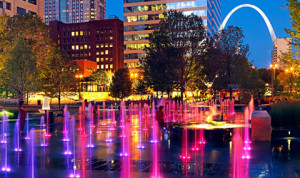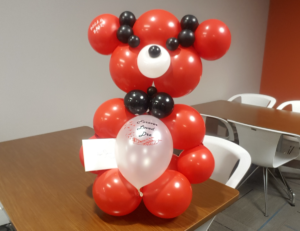
Historic 150-Year-Old School Transformed into Nonprofit Incubator
Recently renovated building to feature the nation's first co-learning space that exclusively serves manufacturers and distributors.
A historic school building celebrated its 150th birthday with plenty of new opportunities to learn without the antiquated chalkboards and pencil sharpeners. Building owner goBRANDgo! recently opened the newly renovated Carondelet School for its nonprofit Conflux Co-Learning, the nation’s first co-learning space where manufacturers and distributors can actively collaborate to ensure their businesses’ success via shared innovations.

Located at 8221 Minnesota Ave. in South St. Louis, the 26,000-square-foot former school underwent a $2 million expansion that includes a variety of options for Conflux members including interactive workspace, an innovation lab, recording studio and six state-of-the-art teleconferencing rooms.
goBRANDgo!, a marketing company that primarily works with manufacturing and industrial companies, introduced Conflux in March 2020, shifting the community to a virtual setting prior to physically opening its doors. It has relocated its headquarters from 3301 Wisconsin Ave to the new space and plans to hire 10 employees to accommodate the expansion across both companies.
The new building will host public and members-only events to help supply chain leaders grow their businesses. Conflux features membership levels for individuals, small teams, and companies with access to leadership workshops, strategic speakers, round table discussions and collaboration opportunities.
The Carondelet School, which was designed by architect Frederick William Raeder, was built in 1871 to teach more than 400 children of local laborers and manufacturers. It operated for over 100 years before closing in 1976, later serving as a private Christian school before becoming vacant in the 2000s.
Brandon Dempsey, partner at goBRANDgo!, said the building’s renovation focused on repurposed and reclaimed materials.
Conflux recovered over 50 tables and chairs from the Missouri Botanical Gardens’ Ridgway Visitor Center demolition, and the company constructed more tables with reclaimed building materials from the demolition. More than 2,000 square feet of wood flooring was built by hand to match the building’s original wood floors.











